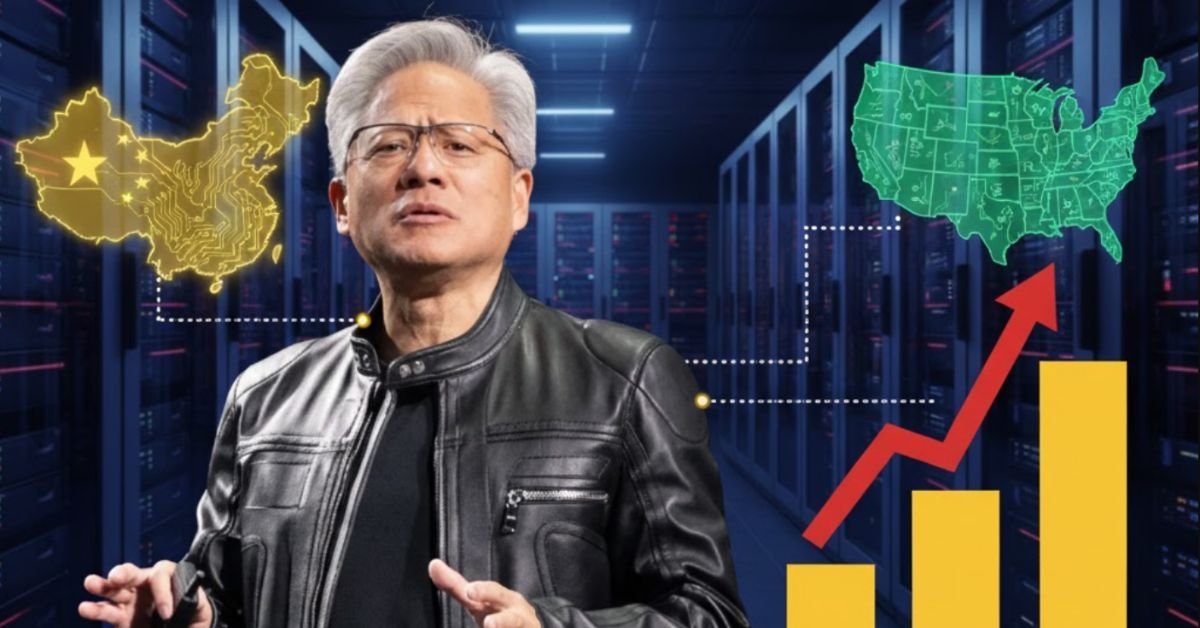Jensen Huang, CEO of Nvidia, declared at the Future of AI Summit hosted by the Financial Times that China is set to beat the U.S. in the artificial intelligence (AI) race. He pointed to China’s lower energy costs and looser regulatory environment as key advantages.
Huang highlighted that Chinese data-centres benefit from heavily subsidised electricity and local government incentives making power «almost free». That creates a major cost advantage for AI training and inference workloads.
He contrasted this with the West, where higher energy prices and fragmented regulations drive up the cost of deploying large-scale AI infrastructure.
Huang criticised growing AI regulation in the U.S., warning of “50 new regulations” across different states that could hamper innovation. Meanwhile, China’s unified approach and financial support for tech firms allow faster scaling of AI systems.
He stated: “We want America to win … but if we lose half of the world’s AI developers, that hurts us.”
Reflecting on export bans on Nvidia’s high-end chips to China, Huang argued that shutting China out of U.S. tech might actually weaken the U.S. position globally by excluding hundreds of thousands of Chinese AI developers who could otherwise build on U.S. platforms.
Implications for AI Industry & Policy
- For the U.S.: Policymakers may need to reconsider whether restricting hardware exports or heavy regulation is the best way to maintain leadership, or whether global collaboration and competitive energy/infra policy are more effective.
- For China: The cost and regulatory advantage might accelerate Chinese AI model development, potentially narrowing the gap with Western leaders such as OpenAI and Anthropic.
- For Nvidia & the chip sector: Huang’s warning signals a strategic pivot, the company may push for broader access to global markets, even if regulation is restrictive.
Given the central role of AI in future economic competitiveness, defence, and geopolitical influence, Huang’s remarks serve as an alarm bell: if one of the world’s top AI-chip companies says China will win, investors, governments and tech firms should take note. The race isn’t just about algorithms, it’s also about infrastructure, regulation, energy and talent.
Final Word
Huang’s statement, “China is going to win the AI race,” puts into sharp focus how energy economics, regulatory agility, and developer access are shaping the future of AI leadership. Whether America regains or retains the lead may depend as much on policy and infrastructure as on innovation alone.









